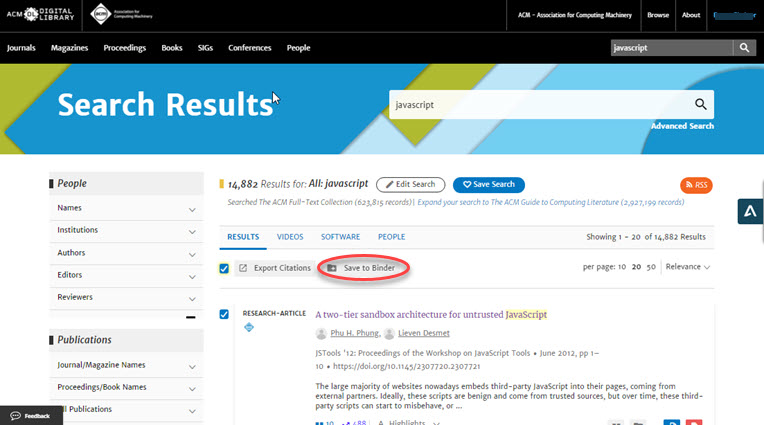In today’s digital age, finding the right information quickly is essential. Whether you’re a student, a researcher, or a professional, having access to a powerful search tool can make all the difference. Faspeinfo is one such tool.
Faspeinfo is an advanced search engine designed to help users find accurate and relevant information efficiently. Unlike standard search engines, it focuses on delivering tailored results based on specific user needs. It caters to a broad audience, from academic researchers to professionals looking for industry-specific data.
Let’s take a look at everything you need to know about how to effectively search on Faspeinfo. We’ll break down the key features, and provide tips for getting the best results.
Getting Started With Faspeinfo – Let’s See Different Ways!
Before diving into advanced features, let’s start with the basics. To **search on Faspeinfo**, you first need to access the platform through its website or mobile app. The homepage presents a straightforward search bar where you can enter your query. As you type, Faspeinfo may offer suggestions to help refine your search.

Basic Search:
The basic search function on Faspeinfo is similar to what you might find on other search engines. Simply type your keywords into the search bar and hit “Enter.” It will then provide a list of results that match your query. These results are typically organized by relevance, with the most relevant appearing at the top of the list.
For example, if you are researching climate change, you can type “climate change” into the search bar. It will then display articles, research papers, news reports, and other relevant content.
Advanced Search Features – Why choose Faspeinfo!
One of the main reasons people prefer to search on faspeinfo is the advanced search features it offers. These features allow users to refine their searches and find the most accurate information quickly.
Using Filters:
Filters are a powerful tool on Faspeinfo. They help you narrow down your search results based on specific criteria. For example, you can filter results by date, source, or type of content (such as articles, videos, or images). This is particularly useful if you’re looking for the most recent information or if you only want results from reputable sources.
To use filters, simply enter your search query, then select the appropriate filters from the options provided. For instance, if you’re researching “renewable energy policies,” you might want to filter the results to show only recent government publications.
Boolean Operators:
Boolean operators are another advanced feature that can enhance your search on it. These operators (AND, OR, NOT) allow you to combine or exclude certain terms from your search. For example, if you’re interested in renewable energy but not solar power, you can search “renewable energy NOT solar.”
Using Boolean operators helps you control the scope of your search, ensuring that you only see results that are truly relevant to your needs.
Saving and Organizing Your Search Results – The best part of Faspeinfo!
Once you’ve found the information you need, it offers several tools to help you save and organize your results. This is especially helpful for long-term research projects where you may need to refer back to your findings.

Creating Folders:
This search engine allows you to create folders where you can save and organize your search results. For example, if you’re working on a project about climate change, you can create a folder titled “Climate Change Research” and save all relevant articles, papers, and reports in that folder. This makes it easy to find your saved content later.
Sharing Folders:
Collaboration is another key feature of this engine. You can share your folders with colleagues or team members, allowing them to access the same resources you’ve found. This is particularly useful for group projects or collaborative research efforts.
Setting Up Alerts – Exploring the Useful Feature!
One of the most useful features when you search on Faspeinfo is the ability to set up alerts. Alerts notify you when new content related to your search query becomes available. This ensures that you’re always up-to-date with the latest information.
To set up an alert, go to your profile settings, select “Create New Alert,” enter your keywords, and choose how often you want to receive notifications. You can also manage your alerts by editing or deleting them as needed.
Troubleshooting Common Issues – Here are some common problems and their solutions!
Irrelevant Search Results: If your search results aren’t as relevant as you’d like, try refining your keywords or using more specific filters. Boolean operators can also help narrow down your search.

Unable to Save Articles: If you’re having trouble saving articles, check your internet connection and make sure you’re logged into your Faspeinfo account. If the problem persists, try refreshing the page or clearing your browser cache.
Alerts Not Working: If you’re not receiving alerts, verify that your email preferences are set correctly and that the alert is set up properly in your profile settings.
The Benefits of Using Faspeinfo – Exploring each!
Comprehensive Database:
This search engine has a vast and regularly updated database, ensuring that you have access to the most current information available. This is particularly important for researchers who need up-to-date data for their work. The database spans a wide range of fields and topics, making it a valuable resource for various research needs.
User-Friendly Interface:
The platform is designed to be intuitive and easy to use, even for those who may not be tech-savvy. Whether you’re using the website or the mobile app, navigating Faspeinfo is straightforward. The clean and organized layout helps users quickly find and access the information they need without unnecessary confusion.
Advanced Features:
From filters to Boolean operators, Faspeinfo offers a range of advanced features that make it easier to find exactly what you’re looking for. These tools save time and improve the accuracy of your searches. Users can customize their search parameters to narrow down results effectively, ensuring that only the most relevant information is retrieved.
Collaboration Tools:
The ability to create and share folders makes Faspeinfo an excellent choice for teams working on collaborative projects. Everyone can access the same information and stay on the same page. The platform also supports real-time updates and collaborative editing, enhancing teamwork and productivity.
FAQs:
Can I share my search results with others on Faspeinfo?
Yes, Faspeinfo allows you to create folders and share them with colleagues or team members. This feature is useful for collaborative projects.
How do I save articles on Faspeinfo?
To save an article, simply click on the save option next to the article. You can then organize saved articles into folders for easy access later.
What should I do if I’m getting irrelevant search results on Faspeinfo?
If your search results are not relevant, try refining your keywords, using specific filters, or applying Boolean operators to narrow your search.
Conclusion:
Faspeinfo is a powerful and versatile search engine that can greatly enhance your research efforts. Whether you’re a student, professional, or casual user, the ability to search on this engine efficiently can save you time and ensure you find the most relevant information.
With its user-friendly interface, advanced search features, and organizational tools, Faspeinfo is a valuable resource for anyone looking to improve their research capabilities.
